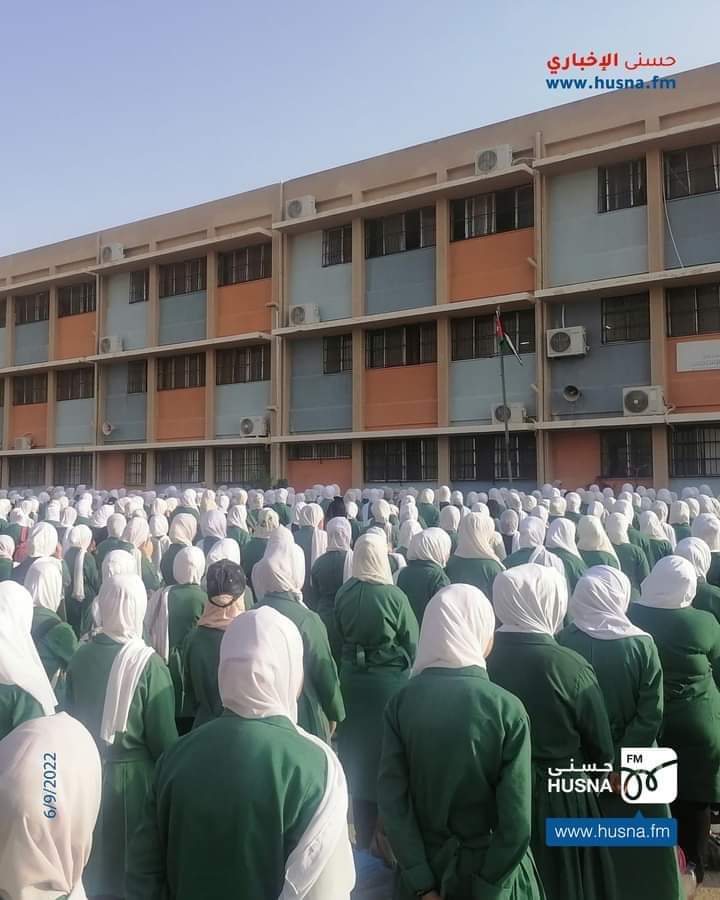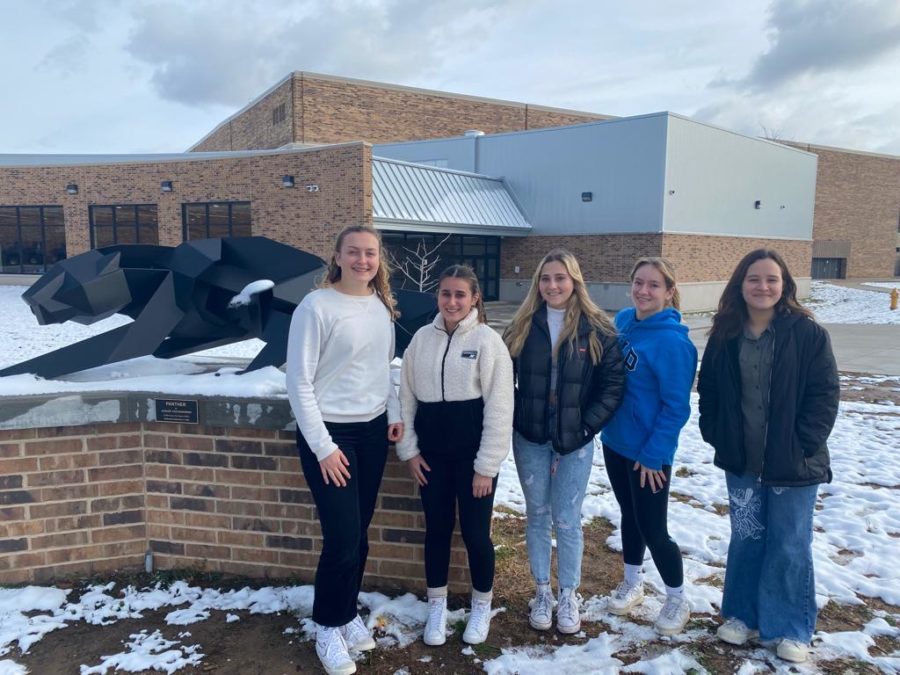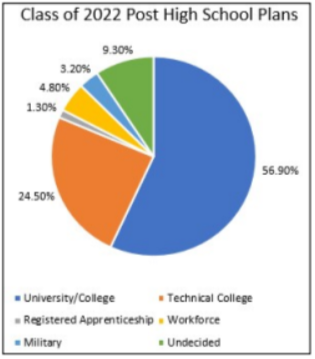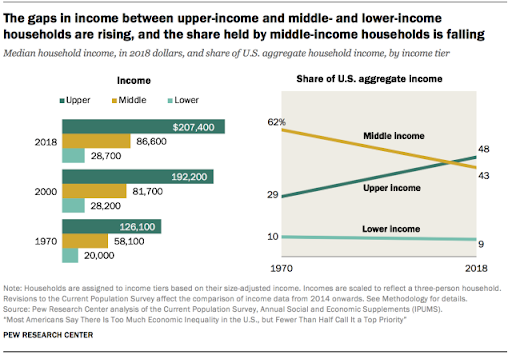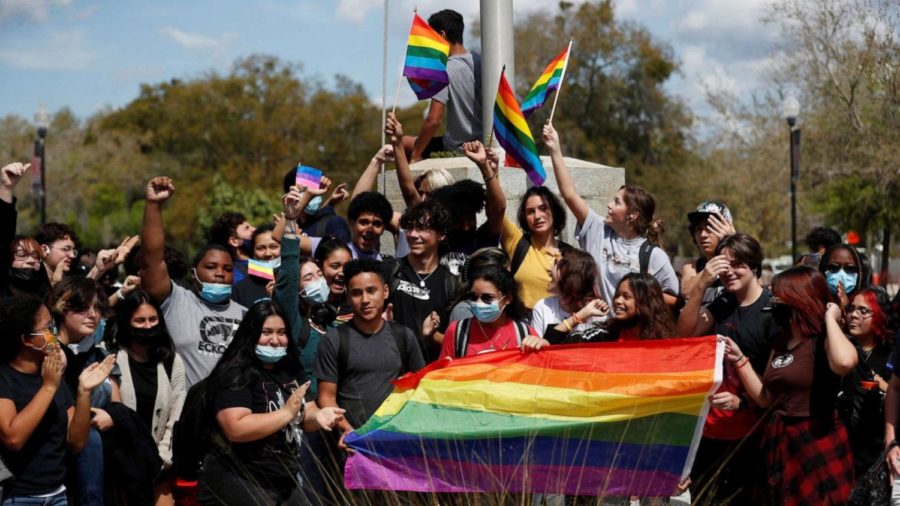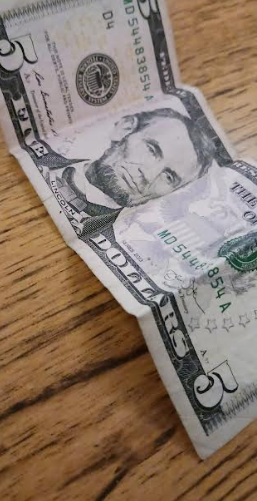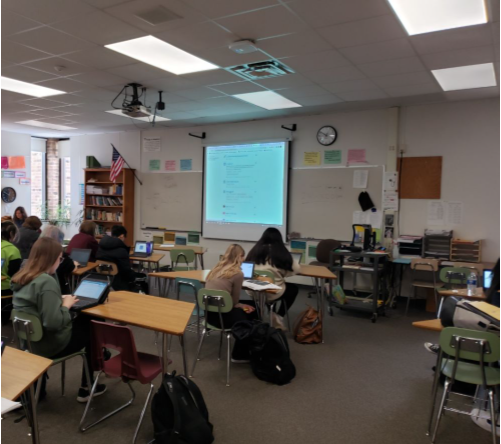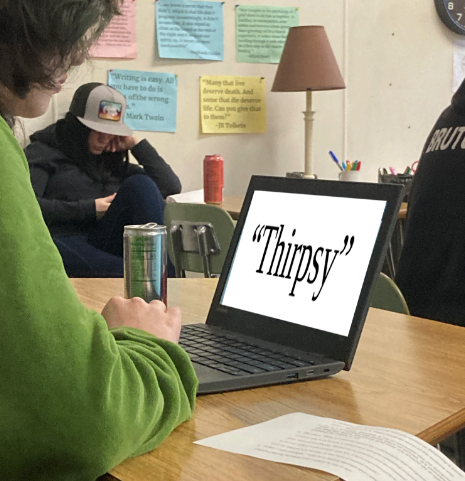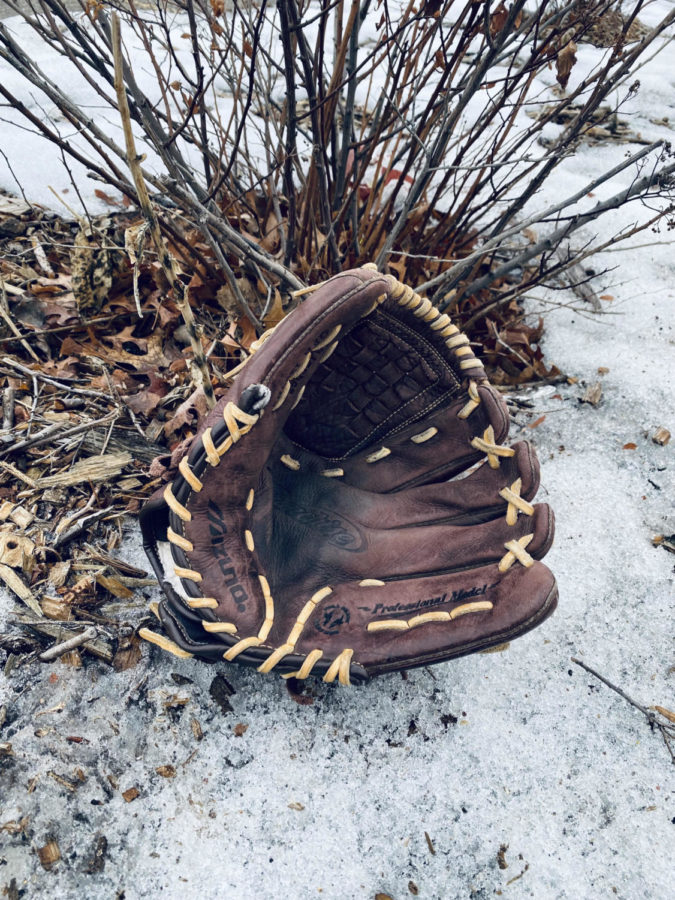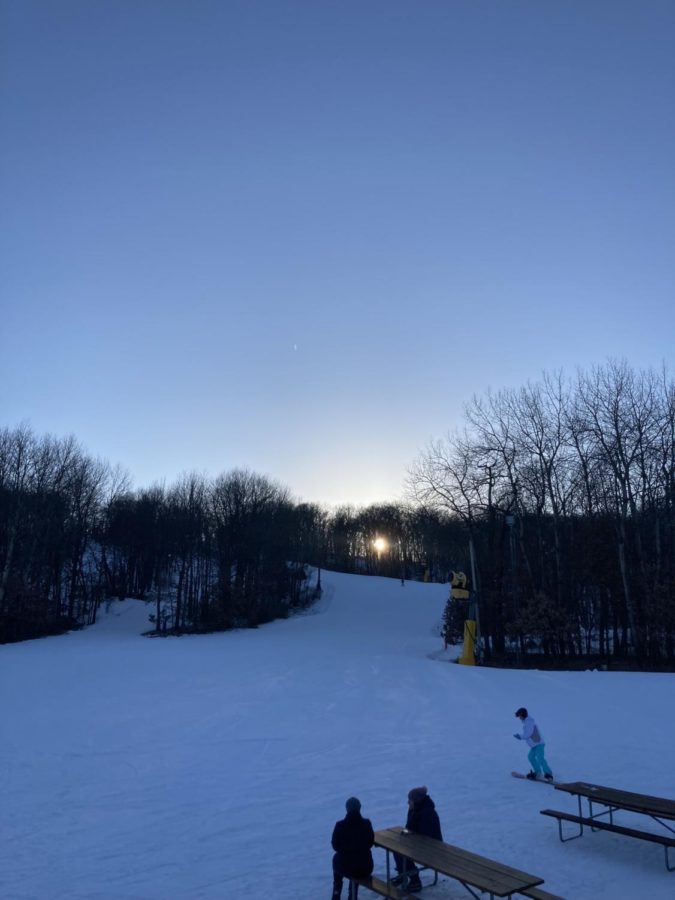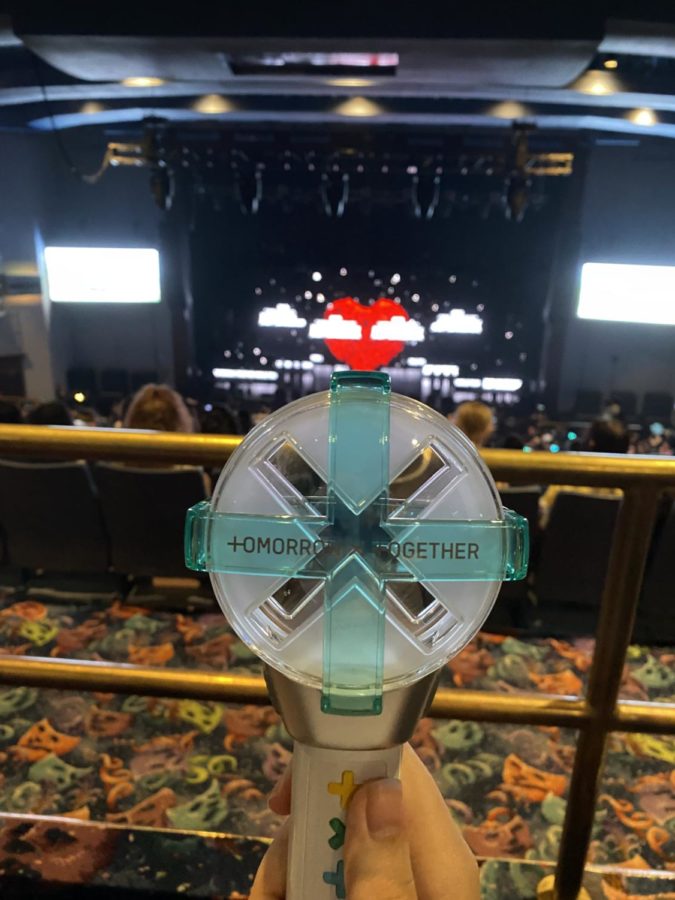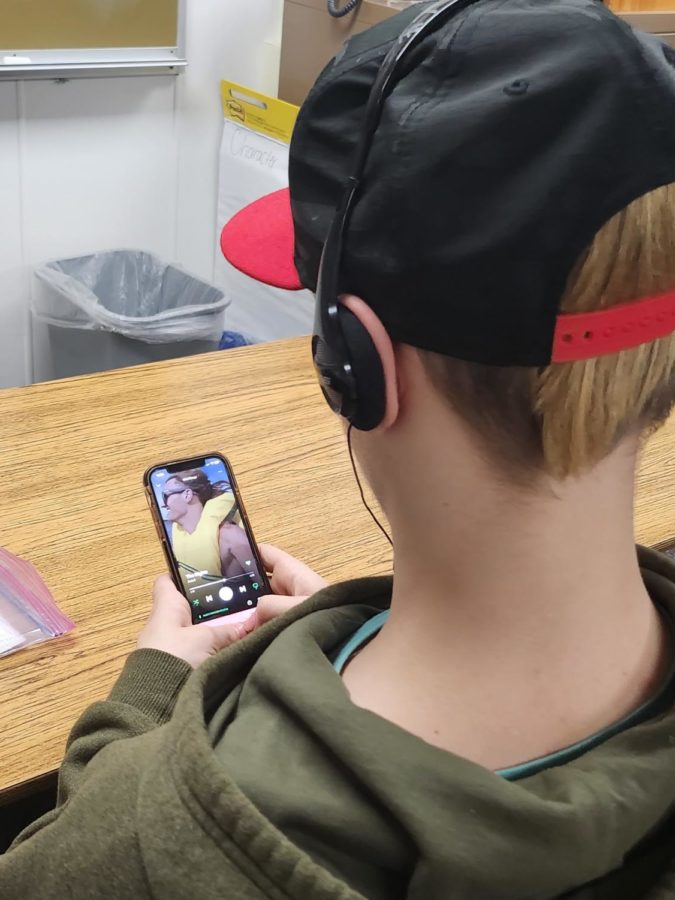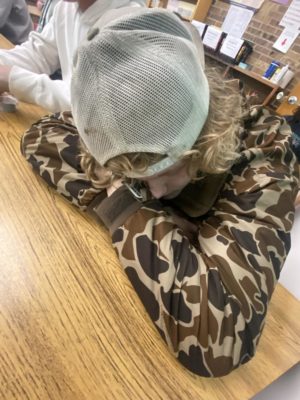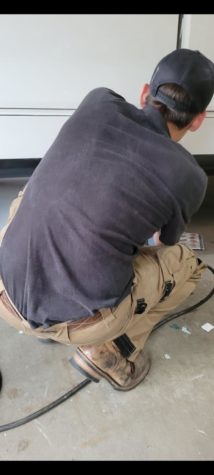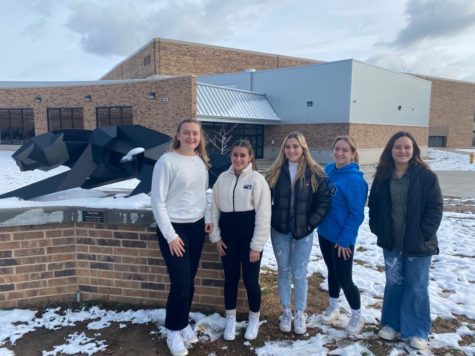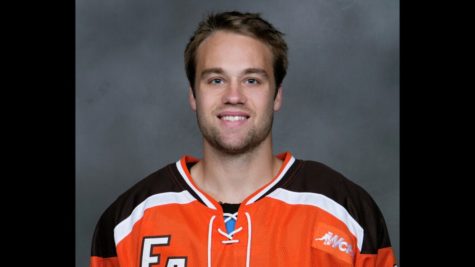Everyone has a story
February 12, 2020
Our new journalists began the semester with a short practice piece which required them to interview someone of interest. Here, for your reading pleasure, are those stories.
The power of reading
Kaitlyn Flanagan
THE MIRROR
English instructor Morgan Brinkman is currently in her second year, teaching English 10 and Exploring Literature. We talked about the importance of reading and why she encourages it so much in her classroom. She even said that we had more people visit the library than go to the movies so she thinks we are seeing a change.
Why did you become an English teacher?
“I became an English teacher because I had a creative writing teacher in high school who inspired me and really taught me a lot about books. He made me feel like there is this whole other world in literature and I wanted to give that to other students as well.”
What was your biggest inspiration that made you love reading?
“Probably my family. Growing up my mom and dad read to me a lot when I was little and so I just continued that habit as I got older. I’ve always read cause they read.”
When did you decide that you wanted to pursue teaching?
“It was after I had my second daughter. I had been working elsewhere at the time and I knew I wasn’t very happy in that job but I knew that teaching would really make me happy so I went back to school to get my education degree.
What makes you so passionate about getting people to read?
“I just think there are so many different types of books out there. Even people who don’t think they like reading, I often wonder if they just haven’t found the type of book they like. There are so many different genres out there and once you find that genre there is a little bit of magic in once you can say ‘I read this and I really enjoyed it.’”
What has been your biggest accomplishment as a teacher?
“Well, I made it through year one and I’m in year two. I think that feels like an accomplishment. There’s just so much to learn in that first year. I think the fact that I wanted to come back here and I was excited to change things up and keep learning as a teacher, that’s a huge accomplishment I think.”
What has been the hardest thing to do as a teacher?
“I think the hardest thing is when I see a student trying really hard and they just don’t get it or that they don’t want to get it. I want so badly for students to feel like they are taking something away from this class…. I will just keep finding new ways to reach them.”
How does it make you feel when a student is unresponsive and doesn’t read?
“I think at first it makes me sad, of course, I can’t make a person read. So I feel like there is this need to uncover why they don’t want to read and figure out ways that will help them become better readers. I respect it though, I feel like there is a reason why people don’t read.”
What are the benefits of reading? Why do you think it is so important?
“I think one of the major benefits especially with reading fiction is that it opens you up to all these different experiences that you’d never get a chance to experience. I feel like otherwise we get really stuck in our own lives and sometimes we get a little self-centered but I think reading is a good reminder that there are all these worlds and lives out there and if we pay attention we can actually learn quite a lot and develop empathy and awareness.”
Have you ever thought about doing more than just classwork/reading time to get people to read more?
“I can say over and over that you should read before you go to bed and most people laugh and they don’t take me seriously but I do give the class time because just in case a person isn’t willing to read outside of class at least they are getting the exposure while they are here and I can at least know they’re trying.”
Do you have any fears for the people who do not read?
“I just think wherever you end up in your life, regardless of your career, there is always something to be learned. If we get too stuck in our ways and stop learning, that scares me.”
What do you hope to accomplish when getting people into reading? If people don’t enjoy reading what are some ideas you can give to tell them to try and read again
“Well, it is my dream that we have this huge book club here that it grows beyond three or four people. I think the goal is to keep being excited for students. There is a lot of power in reading. So a short term goal for the end of the semester, I love the idea that there are going to be a handful of people that say that this was really beneficial.”
What do you hope the future will look like as you encourage more young people to read?
“I see people caring more about each other. I see people making changes that they didn’t otherwise think about or working together more when you see the world through someone else’s eyes, you want to make a change.”
Filter File
Erich Vanblargan
THE MIRROR
Douge Lynch, 65, is one of the three founders of the Shawndra Products Incorporated. He was 31 years old when they started the company in 1982, primarily producing gas filters as well as the parts for the machines they used. The filters that the company produced were then sold to the gas/ oil companies as well as shipping companies. He sold the company and retired at the age of 52.
Q: “What inspired you and/or your partners to start the company?”
A: “I didn’t like any of the people I had to work for… I wasn’t a very good employee. I did my job and everything but they were jerks and I didn’t like them. So I had an opportunity to make filters for us to sell, so I started doing it. I started out every day making more and more, and after 20 years I ended up selling the company to two other people and then retired.”
Q: “Did you start the company with anyone else?”
A: “ I started the company with two other people, so there were three of us, and then eight years later the two of them left the company, and I brought in a new person and three years after that he left the company and I owned it myself.”
Q: “How long did you own/ co-own the company for?”
A: “For eight years I owned 1/3rd of the company, then for three years I owned ½ the company… then for nine years, I was the sole owner.”
Q: “How much did your company make in a year?”
A: “We made around five million a year.”
Q: “You said your company specialized in making filters. What kinds of filters did you make?”
A: “There are several kinds of filters. There are liquid filters, We didn’t make those. There are filters for internal combustion engines, we didn’t make those. We didn’t make that. There are filters for heating and air conditioning, we didn’t do that, and there is a relatively small market for filters that are like the intakes of diesel engines on big ships or intakes for big compressors that made tools are used to drive Kellogg’s cereal factories. And filter out grains and cereal from the vacuum tubes used to transport the cereal and grain through the factory and ensure that cereal and grain weren’t blowing all over the place. So they were usually cylindrical filters that would go in big gas lines like the gas lines in Virginia.”
Q: Did your company ever have any noticeable achievements?”
A: “We took a typical filter that is used for gases and made it cylindrical then patterned it with ASME which is the American Society for Mechanical Engineers and in order to filter gas that was coming out of closed wells it was practical to turn the filter sideways and no one had done that before. We turned the filter 90 degrees to the housing then it looked more like a locomotive engine casing and is parallel to the railroad tracks. Most filters filter 9-500 ozone but in our case, it was to filter elements from the gas, so we had a patent for that, that made our filters different and they worked better and cost less.”
Q: “Did your company manufacture part or all of its products?”
A: “We manufactured all the parts to our products, in some cases we had to manufacture the parts for the machines that made the products. We also made rubber ends for the cylinders, and we were the first people, that I know of to change the filter ends from being polyvinyl-chloride to Hydraform-Polyurethane they use for race car tires.”
The man who escapes death
Wyatt Cornell
THE MIRROR
Justin Cornell is 45 years old. He is an avid outdoorsman and enjoys challenging himself both physically and mentally. This has caused Cornell to be placed in dangerous situations many times.
Q: How many times have you almost died?
A: I’m not sure, quite a few.
Q: What are a few of these instances and what happened?
A: The two main incidents were the lightning and the grill explosion.
Q: What happened with the grill explosion?
A: My friend Joe, who was going to Colorado skiing, was over to have a burger and a beverage. I went outside on the covered porch and lit the grill. I came back in and patted the burgers. I went outside with the burgers on a plate, and I heard a hissing noise. I set the plate down and I realized it was the regulator. So I opened the cabinet door and reached under to shut off the regulator and while I’m shutting the gas off, for whatever reason, the gas ignites. It blew me like a cartoon character against the house. Meanwhile, the grill is on fire, the flames are up to the ceiling, I can’t get the gas off, finally, the thing burns so hot and long it burned through the hose and I took the whole grill and shoved it into the snow and it finally burned itself out. For a while, we thought the propane tank was going to explode. At this point, I realized I was burned. I sprinted into the bathroom and took an ice-cold shower. I ended up having second-degree burns on my face, right arm and right leg.
Q: What happened with the lightning?
A: A friend and I were on a four-wheeling trip to Colorado. We had a lot of experience riding, but what we didn’t realize is what we thought was fog on the mountain, was actually a cloud we were in. We rode all the way to the top, elevation 12,801 feet, it was so darn foggy up there we couldn’t see anything, never thinking we were more than two miles in the air and that could have been a cloud. So, we were on top of the mountain taking pictures and I don’t even really know what happened because it was so disorienting, but later I realized we narrowly missed being hit by lightning. All I knew was I got shocked and hit on the entire right side of my body by rocks because that’s all that was around up there was rocks, no plants, no trees, nothing, just a metal pole stating the elevation and us.
When I looked around I realized that my friend was missing. I found him in the fetal position under his four-wheeler, scared and all but sucking his thumb, and he looked at me and yelled “LIGHTNING!” I was somewhat disoriented, I hadn’t heard the thunder, but knowing where we were I realized we had to get down because we were the tallest things around there. We later determined that the lighting came from below us and arced up, finding the path of least resistance. That path was thankfully not through us, but it blew a big crater in the rock about 30 feet from where we were standing. We went flying down the mountain about 40 mph, with absolute disregard for our own safety because we were highly motivated by the bolt of lightning to not get killed. When we went back up the next day my friend could not believe the descent we made, which is typically done at about 10 mph or less.
Q: Which one should have been the one to kill you?
A: The grill incident could have been worse, but it was unlikely that I would perish. It is unbelievable, however, that we escaped the lightning strike with barely an injury. We are very fortunate to have survived that.
Q: How many different types of scans and tests have you had?
A: I’ve had 6 MRIs, 1 CT scan, 4 electrocardiograms, 8 ultra-sounds, 2 PET scans and countless x-rays.
The rest of Cornell’s story has yet to be written, let’s hope it’s a quiet one.
Interviewing a prominent teacher in the Stevens Point School District
Mazie Maluka
THE MIRROR
Christopher Ahern is an English teacher at Stevens Point Area Senior High (SPASH). Students who had the opportunity to attend a class taught by him can attest how knowable of a teacher he is. However, there is much more to his life and career that students do not commonly know about Ahern.
I know a lot of seniors get stressed out about needing to have their whole life planned out before graduation. Did you always have a plan for what you wanted to do?
I had it all planned out and then my plans came crashing down around my ears when I graduated from high school. I was a math and science guy. I was going to college, I was going to power through a physics program, get my Ph.D. so I could go to work for the Air Force and build laser satellites to shoot down Russian missiles. I got to Ripon College my freshman year, everything was going according to plan, then my advisor retired.
The new chair of the department didn’t like my self-designed major and told me either to transfer universities or transfer majors. She didn’t want me in the department. I ended up bouncing around through just about every department… I never considered the possibility that I would not be doing this and then all of a sudden I wasn’t doing it. I didn’t know what to do with my life.
Around that point in time, my mom also got sick. Worrying about her and trying to figure out what I was going to do, my grades tanked. I flunked out of college. I took two years off to go home and take care of her because she was a single mom and I was the only child, that was it. I came back to college, I came back to Ripon, again. I ended up with a degree in theater and languages.
From there went to Fox Valley Technical College for the police academy. I went out to Portland, Oregon because I had the good luck to graduate from the police academy right when the state of Wisconsin implemented a hiring freeze. No departments were hiring because of budget cuts.
But, Washington state and the state of Oregon… were hitting a big retirement bubble. My now-wife, at the time my girlfriend, and I moved out to Portland, Oregon, where I was working with a few departments. I was going through the background check for the FBI to become a federal agent when I responded to a disabled motorist. The engine exploded and I injured my right shoulder just badly enough to where I couldn’t do law enforcement, military, fire, emergency or EMT paramedics anymore.
I came back to Wisconsin and worked in the private sector for a while. Then went to the University of Wisconsin-Stevens Point (UWSP) and got my teaching licenses.
During all of this, it is easy to see all of the roadblocks you encountered to get where you are. What advice would you give on how you stayed positive through all of these challenges and kept going?
Part of it was just keeping the end goal in sight. The reason I decided to go into teaching was because I was in law enforcement I wanted to be a school liaison officer. I always knew that I wanted to be in the schools, I wanted to work with kids more on crime prevention rather than crime solving and punishment.
This is also partly why I have resisted people who suggested that when I got my master’s degree I should get my principal’s license because I really don’t want to be an administrator. I want to be in the classroom because I feel that’s where I have the greatest opportunity to work with kids.
In terms of the roadblocks, it’s okay to get discouraged, I got discouraged. But, when something like that happens you take a moment, you catch your breath and say okay this happened what do I do next because I can’t stay here. This path has ended, but now there is another path over there.
You helped found the E-sports program at SPASH, did that passion originate with more of your scientific background or was that just another interest you had?
It’s kind of another interest. I was already advising the Gaming Alliance, which does more traditional games ranging from card games and board games to tabletop roleplaying games like Dungeons and Dragons, Champions and stuff.
When I was in high school and college I was actually a competitive athlete. I played soccer, rugby, football, baseball and lacrosse.… I have always liked video games but I have always been more of a solo game player and especially like world-building games.
I didn’t know a whole lot about the E-sports program until somebody brought it up to me and said, hey we’re looking into stuff like this. Being a competitive person, I thought well that’s interesting so I did a little research into it.
I found out that actually our class of 2019 here at SPASH had a graduate who won an E-sports scholarship… Katherine Kaster has been working with UWSP… I have been working with the Steering Committee for the new Wisconsin High School E-sports Association writing bylaws setting up schedules and codes of conduct things like that.
What direction do you see your career going in for the future or are you happy with where you are currently? On the SPASH website, it listed that you went back to college to get your National Board Certification in English do you think this will be the last time you go back to college to further your education?
I am working on my National Board Certification as a teacher. We do currently, at SPASH, have two National Board-Certified Teachers one of them is Ann Marchant in English as a Learned Language and the other is Valerie Willems in the guidance office. But, I am working on that for English and then my next project after that is getting my Ph.D.
The Gamers Alliance is a fairly unknown club for most students at SPASH. I was wondering if you might be able to describe what usually happens at meetings and any new opportunities for students to get involved with Gamers Alliance?
We are trying to do Wednesday night Dungeons and Dragons at the YMCA. I have been working with Tiffany Praeger who is the teen program director for the Stevens Point Y. We’re actually looking at doing some games for their upcoming Games Galore Overnighter which is for elementary school students.
I am also helping out a little bit with the Portage County Library which is doing a young Dungeons and Dragons program with grades four through nine. Some of our own SPASH students are the volunteer game masters for that, working with the younger students.
For a number of years, I was an associate advisor for the DC Everest Gaming Club which puts on Evercon. Evercon just celebrated its 20th anniversary this year.
Gaming Club, essentially, is an outgrowth of two things: one, teachers who love games and two, kids who are looking for a place to belong, that sometimes struggle with the traditional cliques of sports, or certain classes or academic groups. It’s basically an open door to come in sit downplay something.
I have a cabinet full of board games. We have a number of members who are into Dungeons and Dragons. We have a number of people who are into Magic [the Gathering]. We have some kids who bring in their computers and set up a local area network to play video games. Basically, if you want to play it we probably have people who will play it with you.
With you being a Lit and Film teacher here at SPASH I think it is fair to call you an expert on book to movie adaptations, with that in mind I was wondering what is your opinion on some of the newer adaptations that are coming out, especially the very anticipated release of the Si-Fi classic Dune?
Yes, Frank Herbert [the author of Dune], the original mini-series which was long, but the book is long, part of it is that the metaphor of time in the desert stretching out. It’ll be interesting to see what they do to the storyline and how they condense it.
Now granted movie audiences have moved on from, the back in the 70s and 80s, where 90 minutes was your cap. Part of that was also because… movies generally only lived on if they were turned into a tv-movie of the week on the broadcast which needed to be 90 minutes so that they could edit in a little and add 30 minutes of commercials to make it two hours.
Endgame was just around three hours. That was really pushing the audience’s limits even for such a highly anticipated and successful film. I don’t think that they will be able to push Dune much past the two and a half hours, maybe, two-hour forty-minute mark.
Do you see any of the movie adaptations that are currently being released as material that future Lit and Film classes will be analyzing or is Lit and Film’s course material going to remain fairly consistent in the coming years?
Actually, over the last two years, we have already shaken up the class a little. We trimmed down the One Flew Over The Cuckoo’s Nest part of the unit which made room for our first graphic novel, Captain America The Winter Soldier. Then second semester last year that avalanche of snow day cancellations made it so that we had to add another unit after the seniors graduated because we had to get most of our course stuff in so that the seniors could take the exam. We put in a unit with The Beauty and The Beast. We are using a 16th century translation of the French text and then the 2017 mostly live-action, with Emma Watts and Emma Thompson.
Actually, Kari Witt and I were just talking the other day because a number of students have asked if there is a possibility of a Lit and Film Two. We’re looking into that, it would be a partner class, it wouldn’t be you had to take one before the other. This would give students the option, to have Lit and Film twice, to still credit one as possibly your junior-level literature class and then the other as your elective. For example, in the current class, we do Minority Report, by Philip K. Dick, and I would really love to study Do Android Dreams of Electric Sheep which became Blade Runner.
On the note of changing Lit and Film and creating new courses, if you had the chance to create your dream course what would you like to teach?
Well, I love fantasy and science-fiction. I would love to do something with The Lord of the Rings possibly including Star Wars because the corollaries between Sauron [the antagonist of The Lord of the Rings] and the Emperor [the antagonist of The Star Wars series] are too many to overlook.
I also, as part of my education classes at UWSP, did what’s called a CULPA, which stands for course unit lesson plan assignment, basically, I had to design a class. I designed a class called The Literature of Warfare. I got to collaborate with one of my professors who was designing the college class War in Film and Lit.
That class looked at material starting with history and fantasy. For example, The Iliad, King Arthur and the Crusades moving all the way up through history. It was heavy with history as well, which is good for the cross-curricular.
Then it brought it all the way up to World War One. Which gave us the poets of World War One, Siegfried Sassoon, Wilfred Owen, etcetera. World War Two which gives us Heart of Darkness. The Vietnam War which gives us The Things They Carried.
Then, there was also a book by Sebastian Junger called War which is the companion piece to a documentary that Junger had helped film while he was embedded with a US Marine Unit in Afghanistan, still very topical today.
The tragic death of a legend
Kenny Schultz
THE MIRROR
Jared Garski, a 17-year-old attending Stevens Point Area Senior High (SPASH), looks up to many professional athletes, and one in particular, Kobe Bryant. Bryant was drafted in the first round of the 1996 NBA draft by the Charlotte Hornets and immediately traded to the Los Angeles Lakers. There he played 20 seasons and became a local hero and a legend.
Q: What was your first reaction when you heard that Kobe Bryant had been killed on Sunday, Jan. 26?
A: Just very shocked and I didn’t believe it was real.
Q: How do you feel about the whole country talking about the tragic death of Kobe Bryant in the past few days?
A: I think it’s good because it shows people care.
Q: Does this incident impact you at all as a basketball player?
A: Yes, because of the example he has set for me and I have always looked up to him as both a person and as an athlete.
Q: How do you think Kobe’s family is feeling about the loss of their loved one and his 13-year-old daughter?
A: Just in denial and depressed over the death.
Q: If you could, would you want to write a news story about this incident? If so, why?
A: No, I’m really not interested.
Q: I know that the incident happened so fast, but if you were Kobe and you were there in that helicopter, what would be going through your mind as you were about to hit a mountain?
A: I would just be scared and I’d just be hugging my daughter. I’d be praying, actually, I might jump out, it’s on my terms.
Q: How would you feel if you had just lost a loved one out of the blue like this incident?
A: Just depressed, I wouldn’t want to do anything and just sit in my room and pout.
Q: Have you ever lost a loved one that turned out to be such a tragedy as this one?
A: I mean yeah I guess, my grandpa had brain cancer.
Q: In your mind, what kind of example did Kobe set to other people on this planet?
A: Just work hard and don’t give up on yourself.
Q: Does Kobe inspire you at all as an athlete that is playing basketball right now?
A: He does a lot because I have always looked up to him.
Q: Why do you think that Kobe accomplished so much in only 41 years of age?
A: Whatever he set his mind to, he accomplished. He always gave it his best.
Q: If you were a former teammate of Kobe and you just heard about the news of his passing, what would you be thinking about and how bad would this make you feel?
A: I’d just be thinking about his family and feel bad for them. If I had a family member’s number, I’d call and offer my condolences.
Q: How do you think losing Kobe in the basketball world will impact the NBA and people around the NBA?
A: He’s such a good role model for young players, and I think they will look up to him even more now.
A look at a working student
Brian Kraege
THE MIRROR
Plenty of students in high school decide to start working before graduation for various reasons. Today, one such individual will elaborate on not just on their reasons but also experiences while balancing school life with a job. Our guest this time is Joshua Lindner, better known simply as Ralf, currently works at Bill’s Pizza on Main Street, Stevens Point. Ralf is here to answer some general questions about his experience at his job and how it affects him.
Q: When did you first start working at Bill’s Pizza?
A: “I started working at Bill’s Pizza when I was 14 years old in ninth grade.”
Q: What made you start working there?
A: “My dad was friends with the owner and so was I and so I just decided to work there.”
Q: Do you like working there?
A: “Yes I like working there, I have cool coworkers and I get free food”
Q: What is your average day like working there?
A: “My average day is fun, I work and have fun times with my coworkers and eat some food and it’s good. Sometimes I get mad at customers because they’re mean.”
Q: What other tasks are you given while working?
A: “I have to fill the ice, I have to do other stuff like work, that’s about it.”
Q: How long do you usually work per day?
A: “When I work I usually work between four and eight-hour shifts.”
Q: How many days do you usually work per week?
A: “I usually work three days per week, three or four days.”
Q: How does this fit into and affect your school life?
A: “It gives me less time for homework, but usually I don’t do much homework anyway so it doesn’t really impact me much. Sometimes I stay out late and don’t get as much sleep but I don’t go to bed until late anyways so that also doesn’t affect me very much, so it’s really not that detrimental to anything.”
Q: How would you describe the work environment there?
A: “I think the work environment is very good, I think most people are very nice, there are some not nice people but that’s fine, I think overall it is very good and an accepting environment of people that care about you and want to help you do better in life.”
Q: What was it like starting out?
A: “It was interesting because it was my first job, I took it very seriously because it was my first job and kind of stressful because I didn’t want to mess up and do something really bad.”
Q: What tips would you give to anyone looking to work in high school?
A: “I would say just go apply someplace, you could try to apply someplace that gives you extra wage but you don’t really have to. Just try to get the work experience. The interviews usually aren’t that hard in high school but really just take it seriously and show up to work on time.”
Q: Is there anything you would like to say about Bill’s Pizza or your time there?
A: “It is a very wonderful, good place. And my time there has been good, I’m glad I did it.”
Traveling to China
McKenna Coyle
THE MIRROR
Traveling to different parts of the world can be scary but such a cool experience. When people travel they tend to travel with a person, not always but most commonly because it is easier to have someone be there in case you get lost or need help. In the summer of 2018, McKenna’s brother Carter decided to make a one month trip to China by himself. When you get to travel alone, it doesn’t matter what other people want to see and visit on a certain day because essentially you can decide. Carter, of course, had to learn a bit of Chinese before he made the journey to China but he picked it up fast. McKenna can’t even imagine going to a different country alone at the age of 18.
What was the hardest part about traveling to China?
I would say that the hardest part about traveling to China was that I could not speak fluent Chinese and never knew 100% if I was going to the right place. I came prepared with translators on my phone and practiced the pronunciation of the sentence that I was prepared to tell the flight attendants, bus drivers and taxi drivers. Once I got there and met up with my friend that I was staying with, everything became easier because she could speak both English and Chinese.
What food did you like the best?
I am not a big fan of most of the food that they have in China but the thing about food is that it was cheap there. I would most commonly eat a cheap bowl of noodles. The weird thing about China is that they do not drink much milk and it is super hard to find butter. I brought mac and cheese from Wisconsin, and it didn’t taste that good because of the lack of dairy. The city that I went to was known for spicy food and I do not like spicy food.
Would you go back right now if you could?
Well…. The cities that I went to are now infected with the coronavirus so no. If it were a couple of months ago I would have said yes because I love China and everything that it has to offer.
Which area did you enjoy most in China?
The area that I enjoyed the most was Shanghai. In Shanghai, they have a Disneyland and I enjoyed that a lot. I thought it was so cool to see that the Disney princesses in the parade were actually Americans but the music and rides were in Chinese which were so weird listening to.
What was the most bizarre thing that happened while you were there?
It was uncommon for Chinese people to see white people so any time I would be in public, people would stare and try to speak English to me. I sometimes got asked to get my picture taken with people. One day I decided to walk to a park and because I am tall, some kids thought that I was a pro basketball player and explained to me how much basketball meant to them. One day I was eating in a restaurant and I got filmed by a news crew, I am not quite sure why but I found it funny.
What is the difference between the people there compared to an average American?
I noticed that they don’t change their clothes a lot because the girl that I was staying with, her dad wore the same clothes almost every day. Also, Chinese people are kind of short compared to us.
How are things different between transportation in China and America?
I took the train many times and busses because it is cheaper. The family I was staying with had a car but did not use it that much.
Why did you decide to go by yourself?
I like being independent so that I can go off and do my own thing but also because I saved money a lot of money up for this.
What did the people in China think about you?
They enjoyed me because they thought I was a cool person because I was from America. They were amazed by my height because it is not likely to be a 6’3 Chinese person.
What did you wish to have in China with you that they did not have there?
I wish they had normal toilets because the ones you find in China are squatting toilets that are hard to get used to.
How different were the price of everyday items compared to America?
To take into consideration, a regular bowl of noodles from Noodles and Company would cost about $7 and I could get a much bigger bowl of noodles for $3 in China. In my opinion, the noodles in China were better, too. I also got to stay in a hotel room with two queen size beds which would normally cost about $70 – $120 in America for only $23 a night in China and that was nice.
Would you change anything about the places you saw and the things you did if you could relive the trip?
I wanted to stay longer than I did, there were so many things that I wanted to see yet. I went in the summer though and it was very hot and dry so maybe I would go a different time of year and give myself more free time to explore more things.
Stevens Point Area Senior High football 2020 season predictions
Larson Lewis
THE MIRROR
Noah Jung has been a part of the Stevens Point Area Senior High (SPASH) varsity football team since he was a sophomore. He ended up starting in the first game of his junior year against Appleton North. Jung has been to every Panther Fitness session since freshman year and attends all of the offseason workouts. Offseason workouts are available to anyone looking to get faster and stronger in the offseason which will be very effective for our team.
He is also a member of the Football Leader Council (FLC) which is a group of players on the team who make decisions for the team and find ways to build a better culture. The last two seasons have been quite uneventful for the team and the community. Jung is here to give us an insight into the 2020 team and how they are already working towards being a better team.
Q: What will be the biggest difference between this season’s team and last season’s team?
A: We’ve got a lot more guys working hard in the weight room who are trying to build a good brotherhood.
Q: How is the offseason work going to help improve the regular season?
A: We’re bigger, faster and stronger and the team is bonding as a group.
Q: What sophomores who will be juniors next year are going to make the biggest impact next season?
A: I think Ben Raczek will be an x-factor in the middle linebacker positions and I think Quinton Martin can make plays offensively, but overall it’s up to them [sophomore class] to make that impact.
Q: Who do you think will make the biggest impact on the team next season?
A: Whoever can step up and play running back for our run-heavy offense. If we can run the ball we can run the game that’s how it works.
Q: What are the benefits when the team takes a trip in the summer to the University of Minnesota- Duluth (UMD) to play football?
A: It gets our heads in the right place before the season starts and allows upperclassman and underclassmen to bond. It also lets us take a look at our opponents who we will pay this year.
Q: Do you think more team bonding experiences and trips like the Northwestern college game day trip that the team went on a year ago to watch a football game would help the team and why?
A: Yeah, because it’s a big 10 team and lets them do something other than playing football.
Q: Will this season be a senior-led team?
A: Absolutely, absolutely with the number of juniors we had playing varsity last year.
Q: With the restrictions the WIAA has put on the amount of full-contact time during practices, how is not being able to go full contact more often affecting the team?
A: On the defensive side of the ball you aren’t practicing tackling on a human body as much and on the offensive side it doesn’t prepare them for what will come on Friday night.
Q: Will the team make playoffs this year?
A: Yeah, I definitely think we have good shot at playoffs with all of the returning starters we have. We will have a lot of players with a lot of varsity experience and will be comfortable.
Dr. Football
Lionel Perkins
THE MIRROR
Have you ever wondered what was going on behind the scenes at a football game, or been curious as to what they do to injured players? Well after spending many years as a doctor at the Memorial Herman and in Miami he started to work for the Houston Texans. My grandpa’s good friend Bob Spangler has gotten to know the field very well and has many fun stories of helping players recover long term or in the heat of the moment. I have heard many of his stories myself and have been blown away so I couldn’t wait for the chance to ask him questions.
Question: What is usually the first step for a doctor when he takes his initial look at an injury?
Response: “The first thing I would look for is swelling or loss of movement because that often means something is tremendously injured or in need of immediate attention.”
Question: What is the most debilitating injury for a player?
Response: “I think the most difficult injuries include things like tearing or messing with your Achilles along with any other ACL or groin tears.”
Question: How often did players get injured in games?
Response: “Players were constantly getting hurt, we would always have a full tent where the doctors were during games. Often it was for small things like simple wraps but just as often we would do more serious things.”Dr.Spangler said. He also explained how with things like high school football they see many of the same injuries without nearly the same amount of medical staff.”
Question: Why did you stop working as a doctor for the team?
Response: “Well I was also already working as a doctor at the Memorial Herman making quite a living already, it was mostly for fun but eventually became too much for me and my time. You are required to spend many hours with players and be at games and some practices. I spent some time on trips and it took a lot of time away from home.”
Question: Was it as fun to work as a doctor as it would be to watch the game?
Response: “It was great to work at the games for that reason and was one of the deciding reasons when choosing to work there. It is a great advantage to working as a doctor for the team.”
Question: Were there a lot of athletes given drugs to be able to play?
Response: “ Yes they were constantly given drugs, but they were all mostly regular store grade drugs unless the athlete was involved in a serious injury. The stories make it seem as if we shoot them up with drugs but that is not near the case, it was always the athlete’s decision.”
Question: Would you ever consider doing it again?
Response: “No, I’m too old now it was a very time-oriented occupation and I would spend many hours with players and I simply don’t have that time any longer.”
Behind the curtain
Jackie Benton
THE MIRRORWhen it comes to the limelight it seems directors are often cast away and in the dark; specifically musical directors. Dena Mercer opens up about her life as a theatre director as well as her experiences that lead her to where she is now.
- What made you choose to pursue a career in theatre?
- “When I was 14, I met our high school drama teacher. I auditioned for the show Babes in Arms and it is because of her that I fell in love with theatre. I hadn’t really thought of it before then. And from 15 on, I knew I was going to be a drama teacher. I can safely say that it is because of her, Roxanne Englekey!”
- What are some of the big influences that got you into it?
- “Well, she was the biggest influence. And my mother always loved music so she was another big influence. I sang all through school in choir and I played in band. Just music has always been a part of my life.”
- Did any of your past students make it big?
- “Actually, a guy named Keith Beezach has his own improv studio in New York. Another guy, Cory Krebsauk, has been in films in Chicago. Not just on stage but off-stage, Bridgett Williams, is a successful Stage Manager. Isslay Reid is successful in props. Dev and Manny are both in the stagehand Union. So, I feel really fortunate that they got their start here. Not because I taught them a whole lot, they taught themselves. Because they just had a passion for it and they still do. And I am fortunate enough to get to watch.”
- What are some of your favorite things about your job in drama and theater?
- “Well, that part of it where I get to see kids continue outside of this auditorium in a small town. One of the best parts about being a director is that I get to see what was once in my head actually happen on stage. Seeing people come back and say ‘I learned so much and I love drama.’ They probably loved it before they got to me, but knowing that they still live it, that’s good.”
- Can you describe some of your favorite memories that you’ve had?
- “A guy named Matt Beyers was in Cats, which I did make-up and costumes for. The director’s name was Greg Chelcun. Beyers was in the dance studio at the time and he played a cat. At 8 years old, he was the youngest in the cast at the time. His last show as a senior he played, Cat in the Hat for me in the Seussical. And I remember putting his make-up on for Cats and then again for Seussical. And just crying because I said, ‘You started as a cat and you finish as a cat.”
- What are some of your favorite shows that you have produced?
- “Back in the 90s when I did Camelot and back when I directed plays I did I have a lot of fond memories from when I just started.”
- Do you have experience being in any productions?
- “Yes, I am just better at directing.”
- What are some challenges that you face when directing?
- “Getting people to understand what I am trying to tell them in every aspect. Trying to get it from my brain to another person. One of the hardest things I have come to accept is it’s not going to be everything that I have envisioned. And that was going to be one of the hardest things to accept. When stuff happens. When we get pushed back and circumvent to create what we do and people don’t like that and they don’t understand our needs they only understand their own needs.”
- Can you give some tips to anyone aspiring to be in a musical?
- “Read and see everything you can. Play around but knowing if I were to mention something from one of the great playwrights, you should really know what I am talking about if you are serious about theatre. If you don’t, you aren’t as serious about theatre as you think you are. You’re not going to do what you hope to do.”
- What are some key things you look for in an audition?
- “Can the person be someone else other than themselves. Can they sing with the expression for musical auditions? Can they be convincing?”
- What was your dream when you were younger compared to now, theatre-wise?
- “When I first started teaching, my plan was to teach for 15 years in that time I would get my masters and I would move over to the university and I would be there and direct shows there, and then retire from the university. Then I realized once I got teaching that I wasn’t going to be getting my masters as quickly as I thought I was. And then when I got my masters I thought well I was really established here and I liked who I was working with and my space. And thought well I could still move over to the university but then I would take a pay cut. And I couldn’t afford a pay cut by that time. My plan completely changed and I will retire from here.”
- What is it that you specifically do as a director?
- “EVERYTHING. I do publicity, I coordinate, I am a producer, I am the costume designer, I am the set designer, I create costumes. I start working the year before and plan everything out. I work the ins and outs before we even start rehearsals. The only thing I don’t do is lighting and design. And that’s high school. If I was at the university we would have departments for that. If I was professional I would just be directing.”
- What is the biggest difference in directing plays by the level of ages and rank of professionalism?
- “Level of commitment, professionals you are going to have more commitment. They are going for a paycheck. Here they have involved in so many other things that the commitment level is not where I want it to be. And when they are younger their parents have them in so many other activities that the commitment is also not where the director wants it to be. The level of commitment that a director wants is just unrealistic and it’s hard.”
The SPASH gymnastics team tries to persevere through injuries
Maggie Kempen is in her third year as a varsity gymnastics athlete at Stevens Point Area Senior High (SPASH). Right now the gymnastics team is struggling with injuries and illnesses in the middle of the season and needs to be ready for their run at state.
Q: What is the team’s goal for the season?
A: To get to and win state.
Q: What’s the main obstacle in the way of that goal?
A: Lots of injuries and illnesses.
Q: Is there something you can do to prevent more injuries?
A: Keep the mats straight, stretch and stay healthy.
Q: How are the substitute athletes doing while stepping up at the varsity level?
A: They are doing very well right now and they keep getting better.
Q: What is your opinion about the workload and how much free time you have?
A: We don’t have a lot of free time because of meets on weekends and long practices but its
fine because I enjoy gymnastics and being with my friends.
Q: Does gymnastics affect your grades in school?
A: No because I just get my homework done in school or after practice.
Q: What are your team’s strengths?
A: Supporting each other.
Q: What are your team’s weaknesses?
A: Injuries and illnesses.
Q: What do you think about Saturday meets and the long traveling distances?
A: They just take a really long time like the whole day is taken up by gymnastics and it’s hard to get in the meet mode once we get there because of the long bus ride.
Q: What can your team do to improve?
A: Condition more and try to avoid injuries.
Q: What do you enjoy most about gymnastics?
A: Being with my friends and I really enjoy the sport.
Q: How long have you competed in gymnastics?
A: Since third grade.
Q: How much longer do you plan to continue in gymnastics?
A: Throughout my senior year.
Q: How long have you been a varsity athlete in gymnastics?
A: Since the beginning of my freshman year.




















